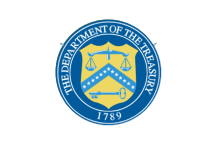Understanding AML Compliance in the United States
Gain insight into U.S. Anti-Money Laundering (AML) regulations and compliance. Learn about the key aspects of AML standards, the major regulatory authorities, and effective compliance practices within the U.S. financial framework.
How AML Regulations are Handled in the USA
The U.S. operates under a robust Anti-Money Laundering (AML) framework, anchored by key legislations and overseen by leading regulatory authorities. It’s crucial for financial institutions to comply with these regulations to mitigate risks and avoid significant penalties.


Industries Impacted by AML Regulations

Compliance Requirements for Businesses

Who do AML regulations apply to?
In United States, AML regulations apply to a broad range of businesses including:
Credit Unions
Financial Services
Fintech
Real Estate
Accounting Firms
Legal
Crypto
Insurance
Mortgages
Community Banks
Tokenization
General Industries

What Business
Need for AML Compliance

Implementing an Effective AML Program in the USA


Reporting Requirements in the USA
Firms in the USA must comply with the Bank Secrecy Act (BSA) by submitting Suspicious Activity Reports (SARs) for transactions that they suspect involve money laundering, fraud, or other illegal activities. Additionally, they are required to file Currency Transaction Reports (CTRs) for cash transactions exceeding $10,000, and keep records of cash purchases of negotiable instruments. These reporting requirements are vital for detecting and preventing financial crimes.
For more detailed information on reporting requirements under the BSA, you can visit FinCEN’s BSA Requirements

AML Regulators in the USA
FinCEN (Financial Crimes Enforcement Network): Operating under the U.S. Treasury, FinCEN is responsible for collecting and analyzing information about financial transactions to combat domestic and international money laundering, terrorist financing, and other financial crimes.
OFAC (Office of Foreign Assets Control): Also part of the U.S. Treasury, OFAC administers and enforces economic and trade sanctions based on U.S. foreign policy and national security goals against targeted foreign countries, terrorists, international narcotics traffickers, and others who pose a threat to the national security, foreign policy, or economy of the United States.

Need up-to-date news about regulations and
enforcement actions?
Resources

FEDERAL BUREAU OF INVESTIGATION (FBI)
For information on the FBI’s role in investigating money laundering and terrorist financing, visit their official website.

U.S. DEPARTMENT OF THE TREASURY
For policies related to the economy, AML, and terrorist financing, explore the Treasury’s resources.

NATIONAL MONEY LAUNDERING RISK ASSESSMENT
Access the comprehensive assessment on money laundering risks in the USA on the Treasury’s dedicated page.
iComplyKYC™ Modules
AML Risk Screening
Comprehensive screening for Adverse Media, PEPs, and Sanctions
Corporate Onboarding
Streamlined, efficient onboarding for legal entities
Document Verification
Robust verification of key documents
Biometrics & Liveness
Advanced biometric and liveness verification for enhanced security
Identity Verification
Comprehensive and reliable identity verification process
How iComply helps Canadian
businesses stay compliant
Compliance
Stay compliant with KYC and AML regulations in 249 jurisdictions, reducing the risk of fines and reputational damage while prioritizing transparency, privacy, and trust for your stakeholders.
Efficiency
Streamline KYC processes and enhance operations while maintaining compliance—be part of building a trusted, secure digital ecosystem empowering people, businesses, and communities.
Customer
Deliver a superior customer experience through frictionless onboarding, clear communication, and enhanced security based on iComply’s core values of trust, accountability, and privacy.
Discover the Power of iComplyKYC™’s software
Ready to take advantage of our complete KYC and AML solution for banking? Contact us today to schedule a demo and learn more about how iComplyKYC™ can help your business stay compliant and secure.









